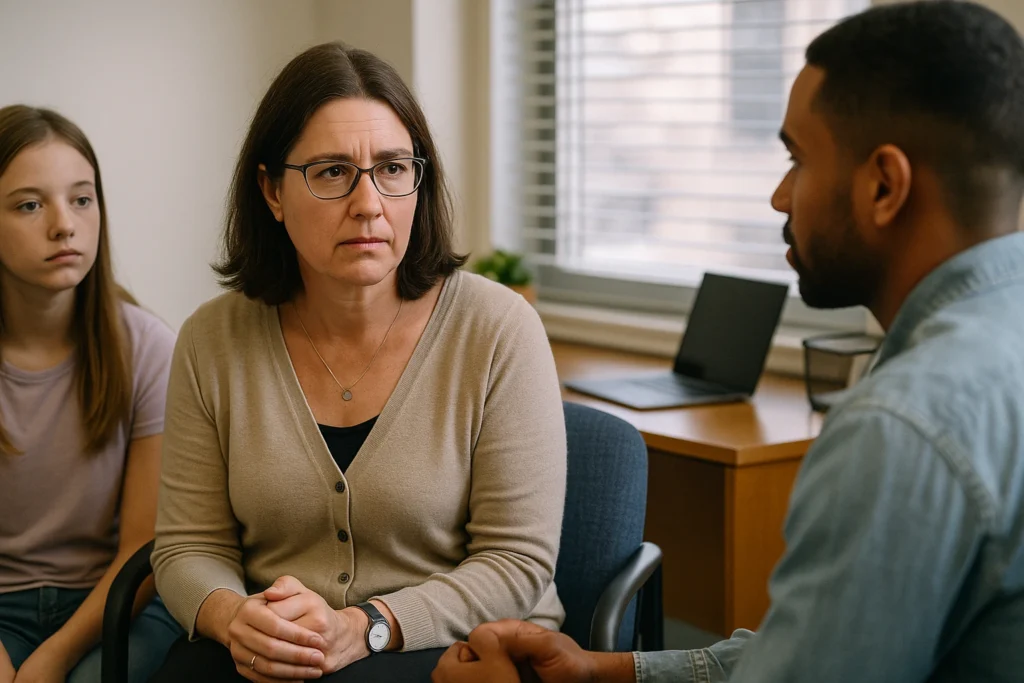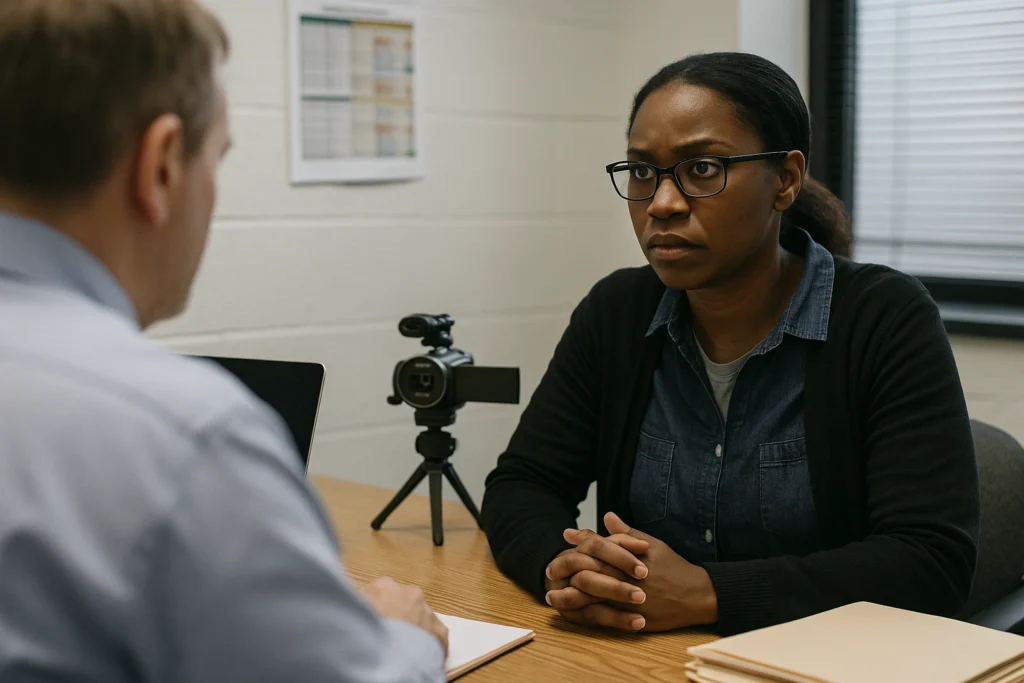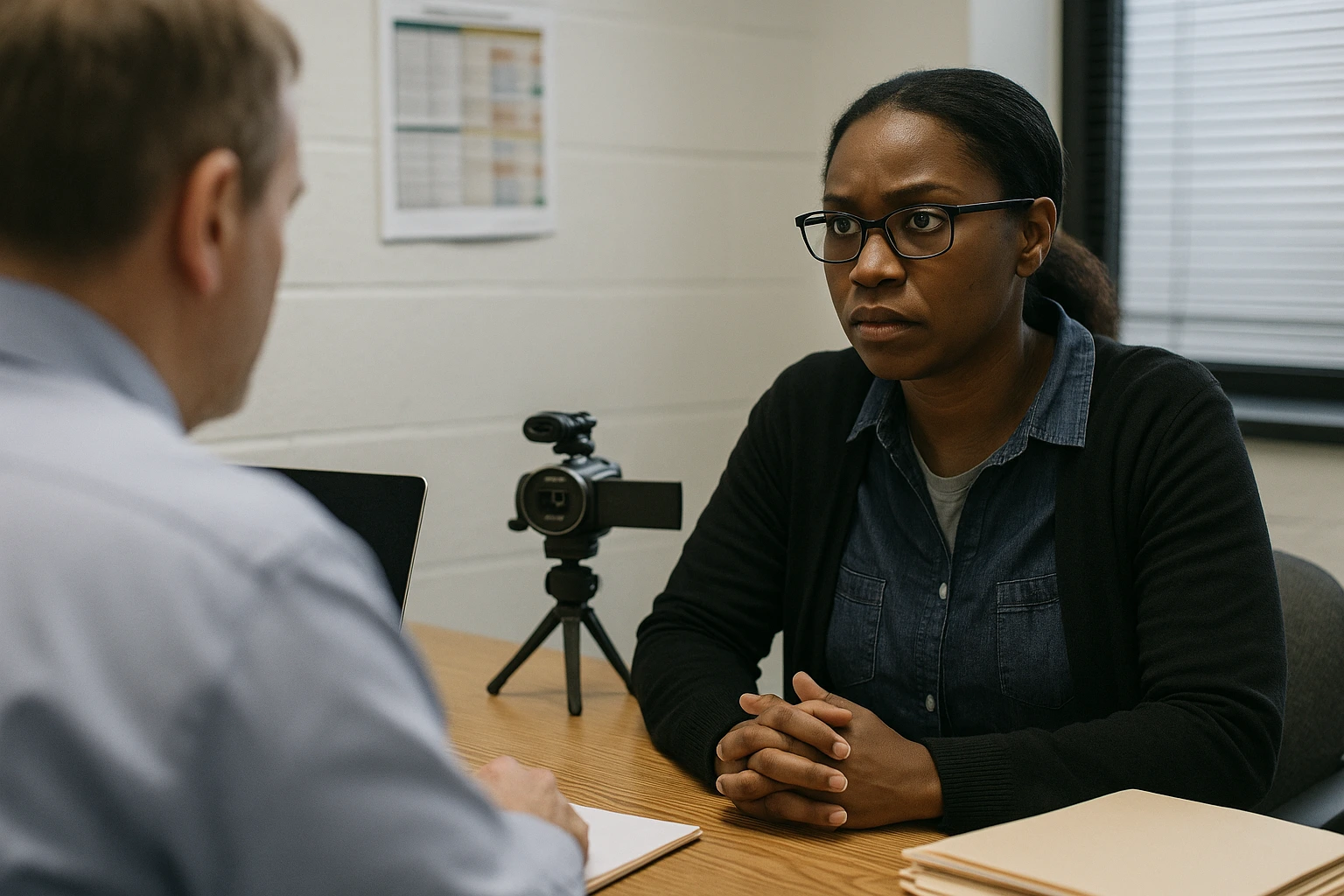
Recording CPS interviews in Texas can play a crucial role in safeguarding your rights and ensuring an accurate record of what was said. These discussions often involve sensitive issues, and having a reliable recording can reduce the risk of misunderstandings or disputes later. By understanding the legal rules for recording CPS interviews and knowing the correct steps to take, parents and guardians can approach the process with greater confidence and clarity.
Understanding CPS Interviews
CPS interviews are investigative conversations meant to assess the safety and well-being of a child. They may take place at your home, your child’s school, or another location. The investigator will ask questions to understand the situation, verify allegations, and decide on next steps.
Interviews can be conducted with:
- The parent or guardian
- The child involved
- Other relatives or people with knowledge of the situation
Texas law gives CPS authority to investigate reported concerns, but it also gives you certain rights during the process.
Your Right to Record CPS Interviews
In Texas, recording laws follow the one-party consent rule. This means you can legally record a conversation if you are part of it, without informing the other person. If you are present during a CPS interview, you may record it without the investigator’s permission.
However, the rules differ if you are not part of the conversation. If your child is being interviewed alone at school or in another setting without you present, you cannot legally record it without consent from at least one participant in the conversation.
Why Recording Can Be Important
Recording an interview can serve as a safeguard. It helps prevent misunderstandings, ensures statements are not taken out of context, and creates a factual record of what was said.
Benefits of Recording
- Accuracy: Keeps a word-for-word account of the conversation.
- Accountability: Holds all parties to the same version of events.
- Legal Support: Provides evidence for your attorney if disputes arise.
Special Considerations for Child Interviews
Texas CPS often interviews children without a parent present. The goal is to allow the child to speak freely without outside influence. While this is standard practice, it limits your ability to record unless CPS agrees or the interviewer records the session.
If you want the interview recorded, you can make a formal request. CPS is not required to agree, but it may consider the request if it serves the child’s best interest or supports the fairness of the process.
How to Request a Recording
If you plan to request that a CPS interview be recorded, approach the matter respectfully and in writing. Clearly explain why recording would help preserve accuracy and fairness. Include your request in any communication with your caseworker or CPS office.
You can also involve your attorney to make the request on your behalf. An attorney’s letter often carries more weight and can make CPS take the request seriously.

When CPS May Refuse Recording
CPS can decline to allow recordings if it believes the presence of recording equipment would interfere with the child’s ability to speak openly or cause distress. In such cases, CPS may rely on detailed written notes instead.
While this can feel frustrating, you can still take steps to protect your rights:
- Request a copy of CPS’s written notes.
- Follow up with your own written account of the interview.
- Have your attorney submit any concerns about accuracy.
Practical Tips for Recording CPS Interviews
If you decide to record, keep the following in mind:
Before the Interview
- Confirm you are legally allowed to record.
- Test your recording device to avoid technical issues.
- Prepare a safe, quiet space to avoid background noise.
During the Interview
- Place your device in a visible, stable position if you want to avoid questions about tampering.
- Avoid interrupting the conversation just to check the recording.
- Keep your tone respectful to prevent escalating tensions.
After the Interview
- Save the recording in a secure location.
- Create backup copies.
- Share the file with your attorney as soon as possible.
The Role of Attorneys in CPS Cases
An attorney can advise you on when and how to record interviews. They can also review recordings to identify inconsistencies or statements that need clarification. Having legal support early in the process increases your ability to protect both your rights and your child’s interests.
Attorneys may also attend CPS interviews, which can provide an added layer of accountability. Their presence ensures the questioning stays within appropriate limits and prevents improper tactics.

Misunderstandings About Recording Rights
Some parents believe that recording without consent is always illegal. In Texas, that is not true if you are part of the conversation. Others assume that CPS will automatically record all interviews, but that is not standard procedure. You must request it if you want a recording.
Another common misunderstanding is that a recording alone will prevent legal trouble. While helpful, a recording is just one piece of evidence and should be combined with legal advice, proper documentation, and cooperation where appropriate.
Balancing Cooperation and Caution
CPS investigators expect cooperation, but you do not have to give up your legal protections to comply. Recording your interactions can be a reasonable step to safeguard your side of the story. You can cooperate fully while still taking precautions to protect yourself and your family.
Possible Risks of Recording
Recording can sometimes create tension. An investigator might feel mistrusted, which could impact the tone of the interview. This does not mean you should avoid recording, but you should weigh the benefits against the potential drawbacks.
If you choose to record without informing the investigator, you should remain calm and respectful during the interview. The recording will only help your case if the conversation itself remains civil and focused.
Alternatives When You Cannot Record
If CPS denies your request or if you are not legally allowed to record, you can still protect yourself:
- Take detailed notes during and immediately after the interview.
- Ask a trusted witness to be present.
- Request written confirmation of any agreements or statements made.
These steps help create a paper trail that can still serve as evidence if disputes arise later.
The Bigger Picture
The right to record CPS interviews in Texas can be an important tool for parents and guardians. It reinforces fairness and protects against miscommunication. Understanding when and how you can use this right helps you manage the process with greater confidence.
While recordings can support your position, they are most effective when combined with professional legal guidance and a cooperative, composed approach during all CPS interactions.
Conclusion
Recording CPS interviews in Texas can be vital for protecting your family. Under the state’s one-party consent law, you may legally record any interview you take part in. This ensures you have an accurate record of what was said, which can be critical if disputes or questions arise later.
If recording CPS interviews is not possible, use other methods to document the conversation. Take detailed notes, involve your attorney, and remain composed throughout the process. By understanding and exercising your recording rights, you place yourself in a stronger position to protect your family’s future.
- Beyond the Basics: Excelling in CPS Interviews under Texas Law
- How to Prepare for a CPS Interview in Texas: A Comprehensive Step-By-Step Guide
- Facing CPS Interviews in Texas: Expert Advice and Real-Life Stories
- CPS Interviews in Texas: A Guide for Parents
- CPS Interviews in Texas: What Questions to Expect
- What Does A CPS Interview Consist Of?
- How to Get Your Kids Back from Texas CPS: Effective Strategies for Parents
- Understanding Child Interviews in the Context of a CPS Case
- Key Questions to Ask a CPS Worker: Navigating Interviews with Confidence
- What Is a CPS Forensic Interview?
Yes, you can record a CPS interview in Texas as it is a one-party consent state for recordings. However, it’s advisable to inform the CPS worker about the recording.
Be honest but cautious with your responses. Avoid speculation or providing unnecessary information. It’s recommended to consult with legal counsel before the interview.
CPS looks for information regarding child safety, parenting practices, home environment, and any specific incidents reported.
CPS can investigate reports of child abuse/neglect, interview the child and family, and inspect the home. However, they cannot enter your home without consent or a court order, and they can’t force you to participate in an investigation without legal proceedings.
No, you are not required to let CPS into your house in Texas without a court order.
During a home visit, CPS looks for signs of safety and well-being such as clean living conditions, adequate food, and the absence of hazards.
CPS investigations in Texas must be completed within 30 days, with a possibility of extension under certain circumstances.



